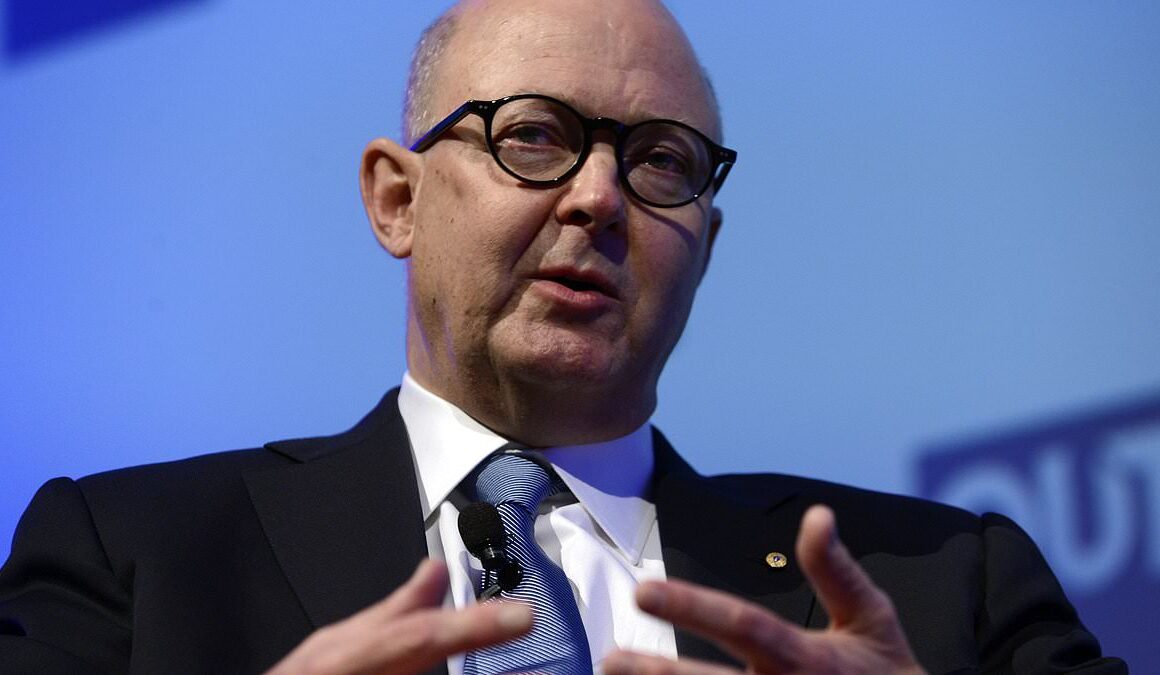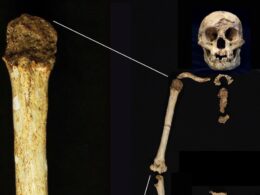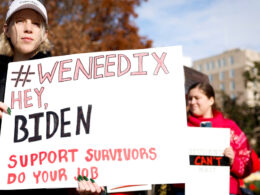The chairman of the ABC has issued a harsh critique of the national broadcaster’s news ‘prioritisation’, urging journalists to focus on hard news rather than lifestyle stories.
Kim Williams slammed the order of stories on the ABC’s website during an address to Radio National staff late last month.
Leaked audio of the meeting, obtained by the Sydney Morning Herald, revealed the chairman wants to have a more active role in the organisation’s news department than his predecessor, Ita Buttrose, who departed the national broadcaster in March.
‘I think people have, in moments of public torment, crisis, division, challenges to leadership, a right to be able to access it from us reliably and immediately, and not to suddenly see a lifestyle story being number one, number two or number three,’ Williams said of the website’s homepage.
Williams used a homepage from a random day as an example.
He pointed out that it failed to mention a NATO meeting from that week, ongoing turbulence in the French election or the wars in Gaza or Ukraine in the top stories.
‘We need to have a better coherent logic in relation to story prioritisation. And I think that’s not surprising, and in fact, is much more responsive to the way in which people expect new services to be delivered,’ Williams said.
‘I think I make no apology for the fact I think news should be prioritised appropriately. Sorry if that’s unsatisfying.’

ABC chairman Kim Williams (pictured) criticised the prioritisation of lifestyle stories over hard news on the broadcaster’s website

Williams wants to revamp the ABC’s news website homepage, radio station and marketing
The ABC has begun rolling out its new website design to some users, which is meant to help its audience navigate its news section easier.
It will go fully live in two weeks on August 19.
Staff seemingly took Williams’ criticism to heart with the ABC’s top website stories on Sunday focusing on Prime Minister Anthony Albanese’s visit to the Garma Festival, the US election, riots in Britain, the Olympics and a report on Russia.
Williams met with Radio National staff at the ABC’s Sydney offices and online in late July as part of his effort to revamp the department.
His goal is to achieve similar reach as the BBC’s Radio 4 in the UK, which reaches 17 per cent of the population every week versus ABC’s Radio National which reaches just 1.5 per cent of people in Sydney and 1.6 per cent in Melbourne.

The ABC’s new website design (pictured) will go live in two weeks time on August 19
Station manager Dina Rosendorff will lead a review of the station’s marketing, programming schedule and begin a project to change the its tagline from ‘think bigger’.
Williams also intends to focus on the ABC’s overall marketing strategy to make all of its departments appear more cohesive to its audiences.
‘My view of ABC programming is that [it] should always be distinctive. Why do it if it’s not? ABC programming needs to be bold. It needs to be something that actually stands up, and that you can embrace and feel proud of, and we need to do that on a very regular basis,’ Williams said.
While the proposed plans will require more funding, Williams said he will look to the work of former 1988 chair David Hill, who was more active in cabinet rather than cutting current funding from smaller department.
‘There has been precious little advocacy from a board level for the ABC for some decades, and that is to be regretted. No doubt, boards had reasons for what happened. I’m not particularly pointing a bone at anyone other than invoking effect,’ he said.

Kim Williams’ comments come after former chair Ita Buttrose (pictured) slammed ABC journalists for becoming ‘too soft’ and suggested that they quit if they cannot handle criticism
Williams’ comments come days after his predecessor sparked controversy by slamming journalists at the national broadcaster as being ‘too sensitive’ and biased.
Ms Buttrose made the explosive claims on Patricia Karvelas’ Radio National Breakfast show last Monday.
She also claimed some journalists at the corporation were biased, adding that anyone who is biased or sensitive ‘should just give up’ if they can’t handle criticism.
‘There’s no harm in presenting both sides of an argument, and I don’t understand the reluctance of some of our interviewers not to do that,’ she said.
‘Have both sides of the story, it’s much better for the viewer or the listener.







